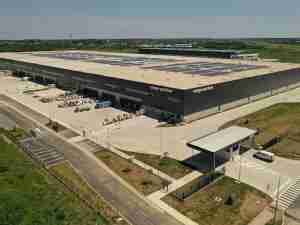Berg Insight, the world’s leading IoT market research provider, today released a new market report covering the cold chain tracking market. The number of active tracking devices deployed for refrigerated cargo loading units including trailers, intermodal containers, rail freight wagons, air cargo containers, cargo boxes and pallets reached 2.5 million worldwide in 2020. Growing at a compound annual growth rate (CAGR) of 20.0 percent, this number is expected to reach 6.2 million by 2025. Refrigerated intermodal container tracking is today the largest segment, followed by tracking devices for general refrigerated cargo applications and refrigerated trailer tracking. The refrigerated rail freight wagon and air cargo container tracking segments are considerably smaller. The total market value for cold chain tracking solutions reached € 465 million in 2020. Growing at a CAGR of 14.1 percent, the total market size is forecasted to reach € 900 million in 2025.
The cold chain tracking and monitoring market is served by a wide range of players. Maersk Line has rolled out a system for real-time tracking of its entire fleet of 370,000 refrigerated containers, making it the largest refrigerated cargo container tracking project worldwide. ORBCOMM is the second largest player in terms of the number of connected units with an estimated 344,000 units installed on both refrigerated trailers and reefer containers. Additional major players in the refrigerated container tracking segment include Envotech, Globe Tracker and Emerson. Leading refrigerated trailer tracking players moreover include Spireon, Thermo King, Cooltrax, Schmitz Cargobull and Idem Telematics. Sensitech (part of Carrier), Controlant and Tive are leading players in the general refrigerated cargo tracking segment. These companies’ solutions are based on trackers that are placed together with the cargo during transportation and can be used for various modes of transport. There are furthermore several cold chain logistics service providers that offer cargo location and condition tracking as a service for their customers. Examples of companies in this group are DB Schenker, DHL, FedEx and UPS.
Cold chain tracking solutions provide significant value for shippers and logistics service providers by providing real-time data on cargo location and condition. These solutions have become extra valuable in the past year when the COVID-19 pandemic has caused disruptions in global supply chains. “Now more than ever, it is vital for shippers to know the exact location and condition of their cold chain products in transit” said Martin Backman, Senior Analyst at Berg Insight. Vaccines, pharmaceuticals and perishables are high-value goods that can easily be spoiled if correct actions are not taken when a disruption in the cold chain occurs. A single shipment of this type of cargo can be worth millions of euros. “Even for low value refrigerated goods it makes sense to invest in a real-time tracking solution as brand reputation can be severely damaged when spoiled goods arrive at the customer site”, continues Mr. Backman. The cold chain tracking solution market is now set for substantial growth in the coming years. “Several new players have entered the cold chain tracking solutions market lately, offering new innovative products and services that create healthy competition and a wider range of solutions to choose from”, concludes Mr. Backman.





_-_28de80_-_d88095865f9f1cbb4ecdd37edf61c63efd603428_lqip.png)

